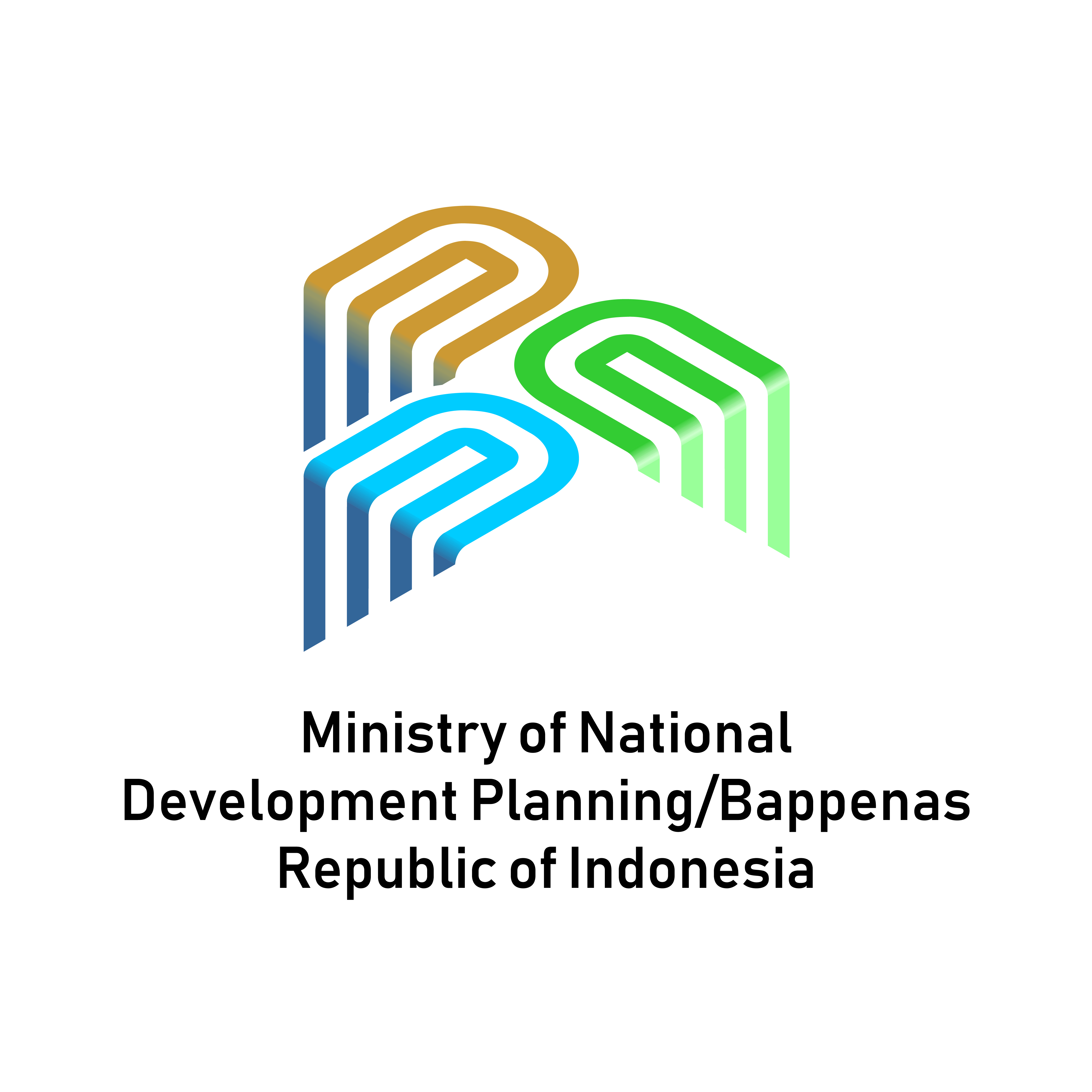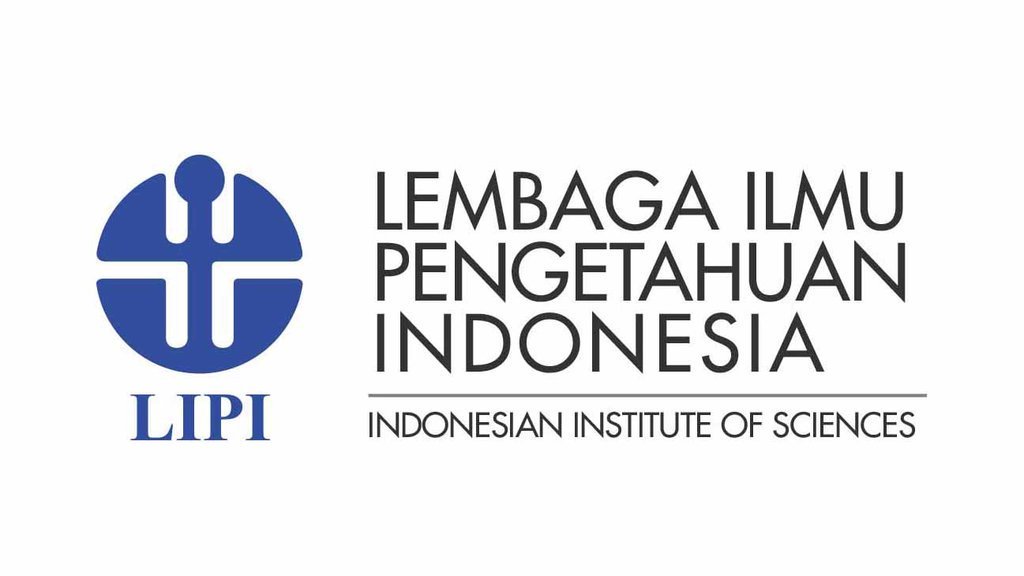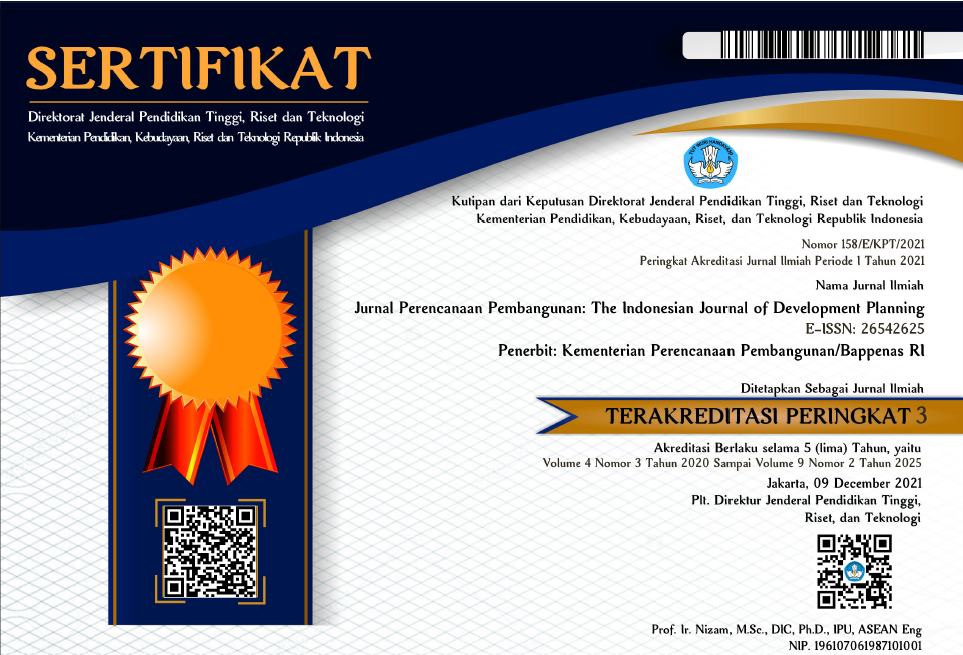Critical Success Factor (CSF) of Implementing PPP Road Sector in Indonesia
DOI:
https://doi.org/10.36574/jpp.v7i2.507Keywords:
CSF, public private partnership, road sector, IndonesiaAbstract
The MPWH of Indonesia has a role in the development of road projects. Road projects require a large number of funds. One of the funding schemes currently being pursued by the government to overcome this funding gap is Public Private Partnership (PPP). The implementation of the PPP requires a lot of attention from various parties so that the project runs well. The purpose of this study is to examine the priorities of CSF in the implementation of PPP in the Road Sector in Indonesia. This study used questionnaires and analysis used mean score & RII. There are 45 samples of private sectors and 5 governments. The results of the study show that strong commitment from the government during the PPP implementation, clear PPP regulations, transparent and competitive procurement process are the top three success factors of the PPP road sector in Indonesia. CSF can provide an overview to governments and private sectors in the implementation of the PPP Road Sector in Indonesia. A strong commitment from governments and private sectors is expected to minimize the risk of project failure.
Downloads
References
Aerts, G., Grage, T., Dooms, M., & Haezendonck, E. (2014). Public-private partnerships for the provision of port infrastructure: An explorative multi-actor perspective on critical success factors. Asian Journal of Shipping and Logistics, 30(3), 273–298. https://doi.org/10.1016/j.ajsl.2014.12.002
Akalkotkar, S. S. M. P. V. (2016). Factors Contributing to Successful Public Private Partnership Projects for Highway Projects in Indian Context. 2016 International Journal for Scientific Research & Development, 3(12), 25–29.
Alteneiji, K., Alkass, S., & Abu Dabous, S. (2019). Critical success factors for public–private partnerships in affordable housing in the United Arab Emirates. International Journal of Housing Markets and Analysis, 13(5), 753–768. https://doi.org/10.1108/IJHMA-06-2019-0061
Al-Saadi, R., & Abdou, A. (2016). Factors critical for the success of public?private partnerships in UAE infrastructure projects: experts’ perception. International Journal of Construction Management, 16(3), 234–248. https://doi.org/10.1080/15623599.2016.1146110
Al-shareem, K. M., Yusof, N., & Kamal, E. M. (2015). External factors influencing the readiness for implementing public–private partnerships among public and private organizations in Yemen. Journal of Science and Technology Policy Management, 6(1). https://doi.org/http://dx.doi.org/10.1108/JSTPM-07-2014-0030
Ameyaw, E. E., & Chan, A. P. C. (2013). Identifying public-private partnership (PPP) risks in managing water supply projects in Ghana. Journal of Facilities Management, 11(2), 152–182. https://doi.org/10.1108/14725961311314651
Ameyaw, E. E., & Chan, A. P. C. (2016). A Fuzzy Approach for the Allocation of Risks in Public–Private Partnership Water-Infrastructure Projects in Developing Countries. Journal of Infrastructure Systems, 22(3). https://doi.org/10.1061/(asce)is.1943-555x.0000297
Babatunde, S. O., Perera, S., & Adeniyi, O. (2019). Identification of critical risk factors in public-private partnership project phases in developing countries: A case of Nigeria. Benchmarking, 26(2), 334–355. https://doi.org/10.1108/BIJ-01-2017-0008
Babatunde, S., & Perera, S. (2017). Cross-sectional comparison of public-private partnerships in transport infrastructure development in Nigeria. Engineering, Construction and Architectural Management, 24(6), 875–900. https://doi.org/10.1108/ECAM-11-2015-0186
Bayat, F., Noorzai, E., & Golabchi, M. (2019). Identifying the most important public–private partnership risks in Afghanistan’s infrastructure projects. Journal of Financial Management of Property and Construction, 24(3), 309–337. https://doi.org/10.1108/JFMPC-08-2018-0045
Byiers, B., Große-Puppendahl, S., Huyse, H., Rosengren, A., & Vae, S. (2016). Principles for public-private partnerships – towards sustainability? - Lessons from SAGCOT, healthcare in Lesotho, and Better Factories Cambodia. Discussion Paper.
Chileshe, N., & John Kikwasi, G. (2014). Risk assessment and management practices (RAMP) within the Tanzania construction industry: Implementation barriers and advocated solutions. International Journal of Construction Management, 14(4), 239–254. https://doi.org/10.1080/15623599.2014.967927
Chou, J. S., & Pramudawardhani, D. (2015). Cross-country comparisons of key drivers, critical success factors and risk allocation for public-private partnership projects. International Journal of Project Management, 33(5), 1136–1150. https://doi.org/10.1016/j.ijproman.2014.12.003
Debela, G. Y. (2019). Critical success factors (CSFs) of public–private partnership (PPP) road projects in Ethiopia. International Journal of Construction Management, 22(3), 489–500. https://doi.org/10.1080/15623599.2019.1634667
Dithebe, K., Aigbavboa, C. O., Thwala, W. D., & Oke, A. E. (2019). Factor analysis of critical success factors for water infrastructure projects delivered under public–private partnerships. Journal of Financial Management of Property and Construction, 24(3), 338–357. https://doi.org/10.1108/JFMPC-06-2019-0049
Geroniks, A., & Lejnieks, P. (2015). Critical Success Factors for Public Private Partnership (PPP) Implementation in Latvia (Vol. 11, Issue 176). SSE Riga Student Research Papers.
Gordon, C. (2012). The challenges of transport PPP’s in low-income developing countries: A case study of Bangladesh. Transport Policy, 24, 296–301. https://doi.org/10.1016/j.tranpol.2012.06.014
Gudiene, N., Banaitis, A., Podvezko, V., & Banaitiene, N. (2014). Identification and evaluation of the critical success factors for construction projects in Lithuania: AHP approach. Journal of Civil Engineering and Management, 20(3), 350–359. https://doi.org/10.3846/13923730.2014.914082
Hair, J., Black, W., Babin, B., & Anderson, R. (2014). Multivariate Data Analysis (Seventh). Pearson Prentice-Hall.
Hashim, H. A., Sapri, M., & Low, S. T. (2016). Public private partnership (PPP) facilities management for healthcare services in Malaysia: The challenges of implementation. Journal of Facilities Management, 14(4), 350–362. https://doi.org/10.1108/JFM-02-2016-0005
Holt, G. D. (2014). Asking questions, analysing answers: Relative importance revisited. Construction Innovation, 14(1), 2–16. https://doi.org/10.1108/CI-06-2012-0035
Jomo, K., Chowdhury, A., Sharma, K., & Platz, D. (2016). Public-Private Partnerships and the 2030 Agenda for Sustainable Development: Fit for purpose? DESA Working Paper, 43(11), 998–1005. http://www.un.org/en/development/%0Ahttp://www.un.org/en/development/%0Ahttps://www.oecd-ilibrary.org/content/paper/f42bd4bb-en%0Ahttps://sustainabledevelopment.un.org/index.php?page=view&type=400&nr=2288&menu=1515%0Ahttp://www.un.org/esa/desa/papers/2016
Kang, S., Mulaphong, D., Hwang, E., & Chang, C. K. (2019). Public-private partnerships in developing countries: Factors for successful adoption and implementation. International Journal of Public Sector Management, 32(4), 334–351. https://doi.org/10.1108/IJPSM-01-2018-0001
Kavishe, N., Jefferson, I., & Chileshe, N. (2018). An analysis of the delivery challenges influencing public private partnership in housing projects: the case of Tanzania. In Engineering, Construction and Architectural Management (Vol. 25, Issue 2). https://doi.org/https://doi.org/10.1108/ECAM-12-2016-0261
Kavishe, N., Jefferson, I., & Chileshe, N. (2018). An analysis of the delivery challenges influencing public private partnership in housing projects: the case of Tanzania. In Engineering, Construction and Architectural Management (Vol. 25, Issue 2). https://doi.org/https://doi.org/10.1108/ECAM-12-2016-0261
Kulshreshtha, R., Kumar, A., Tripathi, A., & Likhi, D. K. (2017). Critical Success Factors in Implementation of Urban Metro System on PPP: A Case Study of Hyderabad Metro. Global Journal of Flexible Systems Management, 18(4), 303–320. https://doi.org/10.1007/s40171-017-0164-6
Le, P. T., Chileshe, N., Kirytopoulos, K., & Rameezdeen, R. (2020). Exploring the underlying relationship among risks in BOT transportation projects in developing countries: the case of Vietnam. Journal of Financial Management of Property and Construction, 26(1), 103–125. https://doi.org/10.1108/JFMPC-12-2019-0091
Liu, T., Wang, Y., & Wilkinson, S. (2016). Identifying critical factors affecting the effectiveness and efficiency of tendering processes in Public-Private Partnerships (PPPs): A comparative analysis of Australia and China. International Journal of Project Management, 34(4), 701–716. https://doi.org/10.1016/j.ijproman.2016.01.004
Liyanage, F. V.-R. C. (2016). Implications of the use of different payment models: The context of PPP Road Projects in the UK. International Journal of Managing Projects in Business, 9(1), 11–32. https://doi.org/http://dx.doi.org/10.1108/IJMPB-09-2015-0095
Macário, R. (2010). Future challenges for transport infrastructure pricing in PPP arrangements. Research in Transportation Economics, 30(1), 145–154. https://doi.org/10.1016/j.retrec.2010.10.015
Muhammad, Z., & Johar, F. (2018). Coping with Challenges of Public-Private Partnership (PPP) for Housing Delivery in Nigeria. International Journal of Engineering & Technology, 7(2.29), 1097. https://doi.org/10.14419/ijet.v7i2.29.14320
Ngullie, N., Maturi, K. C., Kalamdhad, A. S., & Laishram, B. (2021). Critical success factors for PPP MSW projects – perception of different stakeholder groups in India. Environmental Challenges, 5(August), 100379. https://doi.org/10.1016/j.envc.2021.100379
Osei-Kyei, R., & Chan, A. P. C. (2015). Review of studies on the critical success factors for public-private partnership (PPP) projects from 1990 to 2013. International Journal of Project Management, 33(6), 1335–1346. https://doi.org/10.1016/j.ijproman.2015.02.008
Osei – Kyei, R., & Chan, A. P. C. (2016). Developing Transport Infrastructure in Sub-Saharan Africa through Public–Private Partnerships: Policy Practice and Implications. Transport Reviews, 36(2), 170–186. https://doi.org/10.1080/01441647.2015.1077288
Osei-Kyei, R., & Chan, A. P. C. (2018). Evaluating the project success index of public-private partnership projects in Hong Kong: The case of the Cross Harbour Tunnel. Construction Innovation, 18(3), 371–391. https://doi.org/10.1108/CI-08-2017-0067
Regan, M., Smith, J., & Love, P. E. D. (2017). Financing of public private partnerships: Transactional evidence from Australian toll roads. Case Studies on Transport Policy, 5(2), 267–278. https://doi.org/10.1016/j.cstp.2017.01.003
Rohman, M. A., Doloi, H., & Heywood, C. A. (2017). Success criteria of toll road projects from a community societal perspective. Built Environment Project and Asset Management, 7(1), 32–44. https://doi.org/10.1108/BEPAM-12-2015-0073
Sadullah, M., Ghazali, M., & Rashid, A. (2017). Critical success factors in a public–private partnership highway project in Malaysia: Ampang–Kuala Lumpur elevated highway. Proceedings of Institution of Civil Engineers: Management, Procurement and Law, 170(6), 234–242. https://doi.org/10.1680/jmapl.16.00034
Sanni, A. O. (2016). Factors determining the success of public private partnership projects in Nigeria. Construction Economics and Building, 16(2), 42–55. https://doi.org/10.5130/AJCEB.v16i2.4828
Wang, H., Liu, Y., Xiong, W., & Song, J. (2019). The moderating role of governance environment on the relationship between risk allocation and private investment in PPP markets: Evidence from developing countries. International Journal of Project Management, 37(1), 117–130. https://doi.org/10.1016/j.ijproman.2018.10.008
Welde, M., & Tveter, E. (2022). The wider local impacts of new roads: A case study of 10 projects. Transport Policy, 115(October 2021), 164–180. https://doi.org/10.1016/j.tranpol.2021.11.012
Wibowo, A., & Alfen, H. W. (2014). Identifying macro-environmental critical success factors and key areas for improvement to promote public-private partnerships in infrastructure: Indonesia’s perspective. Engineering, Construction and Architectural Management, 21(4), 383–402. https://doi.org/10.1108/ECAM-08-2013-0078
Downloads
Published
How to Cite
Issue
Section
License
Copyright (c) 2023 Jurnal Perencanaan Pembangunan: The Indonesian Journal of Development Planning

This work is licensed under a Creative Commons Attribution-NonCommercial-ShareAlike 4.0 International License.
This is an open-access article distributed under the terms of the Creative Commons Attribution-NonCommercial-ShareAlike 4.0 International License. Copyright © Kementerian PPN/Bappenas RI


















